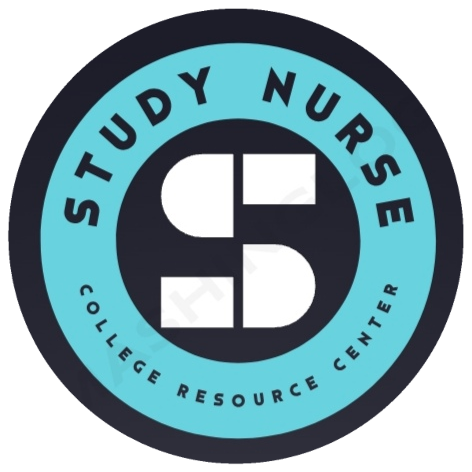Capella University
PHI-FPX3200: Ethics in Health Care
Dr. Phillip Nelson
October 3, 2024
A Right to Experimental Drugs?
New drugs offer opportunities for healthcare providers to help patients improve their health and well-being. Experimental drugs are among the alternative options available for patients with complex conditions. The extensive research and testing associated with the drugs makes them viable for healthcare providers seeking to protect patients from co-morbidities and premature death. The involvement of the Federal Drug Agency in ascertaining safety, effectiveness, and efficiency enhance the need for patients to consider using experimental drugs. However, concerns emerge about the quality of the drugs in terms of their safety and effectiveness in responding to the needs of patients with complex symptoms.
Ethical Theories and Moral Principles on Experimental Drugs
Experimental drugs offer opportunities for healthcare professionals to fulfill their duty of care and protect the sanctity of life. One ethical theory addressing the use of the drugs is utilitarianism. The model encourages healthcare providers to make decisions that produce the greatest happiness. In this case, it is unethical to withhold interventions in ways that undermine individuals’ preferences. The utilitarian examines the benefits and disadvantages to enable them make a rational decision (Marseille & Khan, 2019). With experimental drugs, the utilitarian theory allows the use of experimental drugs to enhance the chances of patients with chronic conditions surviving. Watching patients die when there are alternative medications violates the utilitarian principle.
Ross’s and natural law ethics also apply in experimental drugs (O’Connor, 2019). The models remind healthcare providers about patients’ right to health and life (Dugan, 2019). In this sense, experimental drugs align with the need to ensure that everyone has the right to medical care that help reduce undesirable disease progression. The Kantian ethics also guide healthcare providers on the need for the fulfillment of the duty of care towards patients with serious conditions (Cunning, 2020). The theory allows healthcare professionals to grant access to experimental drugs based on the need to uphold human dignity and equity. The various theories highlight the need for healthcare providers to safeguard patients from premature death by using experimental drugs to restore and prolong life.
Experimental drugs reinforce adherence to beneficence, autonomy, and justice. Fair and transparent services are necessary to deliver patient-centered care. However, the failure to involve patients in clinical trials undermines the principle of justice. Beneficence reminds healthcare professionals to act in patients’ best interests (Varkey, 2020). The goal is to save lives. However, concerns about effectiveness of experimental drugs could discourage their use in chronic situations. The absence of an informed consent from chronically ill patients also prevents professionals from adhering to the beneficence principle.

Applying the Principle of Informed Consent
The principle of informed consent reminds healthcare professionals to uphold a patient’s right to self-determination. Healthcare providers compare experimental drugs with recommended practice standards. The evidence allows them to make informed conclusions about the implications of the drugs on patients’ health (Millum & Bromwich, 2020). Informed consent requires healthcare professionals to share details of the clinical trials and the levels of efficiency and effectiveness. Acknowledging individuals’ decision-making ability promote shared decision on the safety and effectiveness of experimental drugs (Cunning, 2020).
Informed consent also prevents healthcare professionals from exaggerating benefits of experimental drugs. The accuracy and adequacy of information about the drugs help strengthen confidence and trust in using the medications for chronic conditions. Despite the commitment to upholding the informed consent principle, there are concerns about a patient failing to understand the conversations on experimental drugs. Language barriers may also trigger wrong expectations. Incidents of clinical ineffectiveness and potential side effects also allows patients to make informed decisions on avoiding experimental drugs.
Costs and Gains from Experimental Drugs
Patients with chronic conditions have an opportunity to improve symptoms and prolong life by using experimental drugs. The interventions also safeguard individuals against the extensive and time-consuming approval processes. The development of experimental drugs involves thorough investigations of efficacy and effectiveness, which takes time to complete (Mahant, 2020). Additionally, patients have the autonomy to make independent decisions on using the drugs to reduce complications and risk of premature death.
However, patients should access comprehensive information about the drugs to enable them make informed decisions. Failure to include patients in clinical trials also raises concerns about the viability and sustainability of experimental drugs (Mahant, 2020). Further, focusing on a trial population limits more people from participating in ascertaining accuracy and effectiveness of the drugs. Nonetheless, the opportunity to use experimental drugs gives hope to patients with chronic conditions and who require alternatives to improve their health and well-being.
Access to Pre-Approved Drugs by a Larger Patient Population
Patients face challenges coping with chronic conditions. Vulnerability to emotional, physical, and psychological distress reinforces the need for alternatives means of improving health and well-being. Families also face challenges watching their children die, while there are alternatives to help them prolong life (Sibanda, 2019). Health crisis such as Ebola call for interventions such the using of pre-approved drugs to protect patients from co-morbidities and mortality risks.
Mass deaths and related social and economic losses associated with health pandemics make unapproved vaccines and medications relevant for controlling infections, symptoms, and complications (Sibanda, 2019). However, opponents argue that availing experimental drugs to a larger population only benefit manufacturers at the expense of patients’ wellness. The drugs also offer false hopes to chronically ill patients vulnerable to more pain and suffering. The FDA’s slow approval process and bureaucracies also limit more patients from benefitting from unapproved drugs. Despite the drawbacks, patients should have the freedom to choose an intervention that could help them improve symptoms and avoid the risk of premature deaths.
Conclusion
New drug development is an important step towards responding to the needs and expectations of chronically ill patients. The process expands choices available to patients seeking alternatives that protect them from co-morbidities and mortality threats. The extensive studies demonstrate commitment to ensuring that patients have access to efficient and effective interventions. Sustainable use of experimental drugs depends on providers’ efforts to uphold the principles of autonomy, beneficence, and justice. Informed consent is also vital to enable patients make independent decisions on using experimental drugs to control symptoms.
References
Cunning, U. (2020). Public health ethics: A flawed view of Kant’s argument from autonomy. Journal of Public Health, 42(4), 477-481. https://doi.org/10.1093/pubmed/fdz164
Dugan, D. (2019). Appreciating the legacy of Kübler-Ross: One clinical ethicist’s perspective. The American Journal of Bioethics, 19(12), 5-9. https://www.tandfonline.com/doi/full/10.1080/15265161.2019.1676591
Mahant, V. (2020). “Right-to-Try” experimental drugs: An overview. Journal of Translational Medicine, 18(253), 1-5. https://translational-medicine.biomedcentral.com/track/pdf/10.1186/s12967-020-02427-4.pdf
Marseille, E., & Khan, J. (2019). Utilitarianism and the ethical foundations of cost-effectiveness analysis in resource allocation for global health. Philosophy, Ethics, and Humanities in Medicine, 14(5), 1-6. https://peh-med.biomedcentral.com/counter/pdf/10.1186/s13010-019-0074-7.pdf
Millum, J., & Bromwich, D. (2020). Informed consent: What must be disclosed and what must be understood? The American Journal of Bioethics 21(973), 1-19. https://www.tandfonline.com/doi/abs/10.1080/15265161.2020.1863511
O’Connor, J. (2019). Natural law and ethical non-naturalism. Studies in Christian Ethics, 34(2), 190-208. https://journals.sagepub.com/doi/epub/10.1177/0953946820962893
Sibanda, O. (2019). Moral, ethical and human rights arguments for using experimental and clinically unproven drugs to combat the Ebola Virus Disease. Journal for Juridical Science, 44(1), 35-62. https://www.proquest.com/docview/2296664240/fulltextPDF/83FFAA4DE4B40CBPQ/1?accountid=27965
Varkey, B. (2020). Principles of clinical ethics and their application to practice. Medical Principles and Practice, 30, 17-28. https://www.karger.com/Article/Pdf/509119

